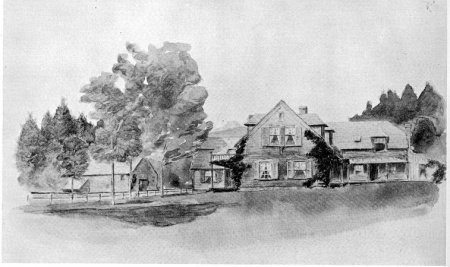It's the last day of class (unless some of us choose to meet on Zoom next week). Seems like only yesterday, though it's actually a year to the day, since I posted this:
LISTEN. Back from Thanksgiving, it's time to wrap things up and send the classes of Fall 2021 out to meet their uncertain futures. The usual last words apply, there really are no fortunes to be told. There definitely is advice to be given, however. Do stay curious, kids, do keep asking questions. And do keep in touch.
It was nice to hear again from my old grad school friend the Biochemist, who makes a point of sending out holiday missives every Thanksgiving and Valentines Day that keep our old far-flung and socially distant 80s cohort in touch in spite of ourselves.
She confessed some despondency in this Thanksgiving letter, "over the state of the country ... and yet I want to be optimistic. But I am genuinely scared about all of the unraveling I see around me."
Many of us feel that way, on occasion. Several of us agree that the daily news cycle is indeed frightful. We're learning to monitor and regulate our exposure to the worst of it. Better to start the day with a little history and poetry.
And best to heed old Henry's sunny words at the end of Walden. A morning atmosphere, at any time of day, is tonic. Wake up. Get up. Do something. Don't stare too long or hard at the light that would put out your eyes. Dream of dawns to come. Build your castles in the air and start climbing.
Listen to Mark and Maria:
"When you arise in the morning, think of what a precious privilege it is to be alive - to breathe, to think, to enjoy, to love… Dwell on the beauty of life. Watch the stars, and see yourself running with them." --Marcus Aurelius“Mingle the starlight with your lives and you won’t be fretted by trifles.” --Maria Mitchell
And listen to the Almanac's trademarked wisdom. Be well, do good work. and keep in touch.
Oh, and to my old epistemologist friends who responded to that holiday letter with worries about "the problem of criterion," "infinite regresses of reasons," whether children or anyone else have justified beliefs, and various "meta-issues" in philosophy etc. I say: When you erkenntnistheorists finally settle those meta-issues, I hope you'll tackle the bigger one. We're all already justified in believing the metaverse is going to be big trouble.
==
It's a year ago tomorrow since I posted this:
Happiness meets for the last time in 2021 today, scheduled to return in '23.
I've taught this course biennially for quite a long time now, and I still don't think we can do better for a coda than Charles Schulz. Happiness is a warm puppy. And really, it's "anyone and anything at all/That’s loved by you."
So our parting takeaway has to be: love profligately, and love well.
And don't be Sally Brown.
















